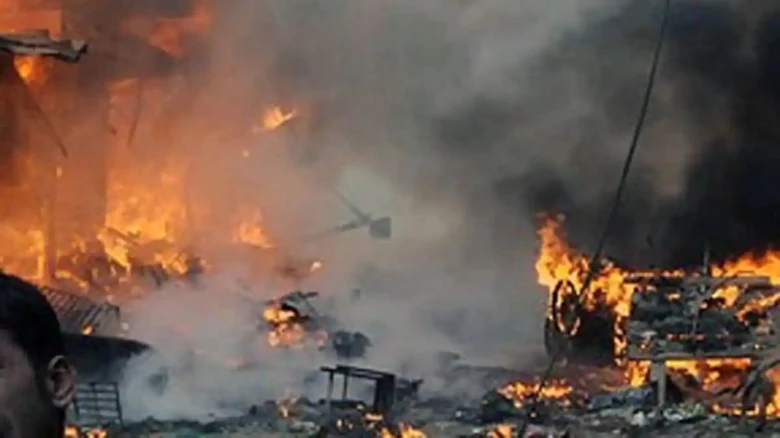Sports

In a statement on its Telegram account, the ISIL (ISIS) group later claimed responsibility for the attack.
Digital Desk: In northern Afghanistan, two blasts took place within minutes of each other, killing at least nine people and injuring 13.
Reportedly, two different vehicles were targeted in the explosion on Thursday in Mazar-i-Sharif, the capital of Balkh province. According to Mohammad Asif Waziri, a spokesman for a Taliban-appointed police commander, the victims of the attack were returning home to break their dawn-to-dusk Ramadan fast.
"It appears that the targets are Shia passengers. Afghanistan's enemies are sowing discord and division among our people," Waziri said.
In a statement on its Telegram account, the ISIL (ISIS) group later claimed responsibility for the attack.
Taliban security blocked off the region and residents said members of the Shia minority Hazara ethnic group were believed to be the target of the attack.
The blast is the latest in a string of devastating blasts that have rocked Afghanistan, and it comes just days after a blast at a Shia mosque in Mazar-i-Sharif killed at least 12 people and injured dozens more.
Last week, a separate bomb assault in the northern city of Kunduz targeted the minority Sufi community, killing at least 36 people during Friday prayers.
Moreover, six students were killed in another blast when two explosives exploded at a school in Kabul, also targeting Shias.
ISIL (ISIS) claimed credit for the mosque attack in Mazar-i-Sharif, but no group has claimed responsibility for the Kunduz blast. In Sunni-majority Afghanistan, ISIL's regional branch has repeatedly targeted Shias and minorities such as Sufis.
ISIL, like the Taliban, is a Sunni organisation, but the two are fierce enemies. The Taliban merely wanted an Afghanistan free of foreign forces, whereas ISIL seeks a so-called caliphate stretching from Turkey to Pakistan.
Shia Afghans, especially from the Hazara ethnicity, account for between 10% and 20% of Afghanistan's 38 million inhabitants.
Taliban leaders claim that ISIL has been defeated, but experts believe that the armed group is still a major security threat.
Leave A Comment